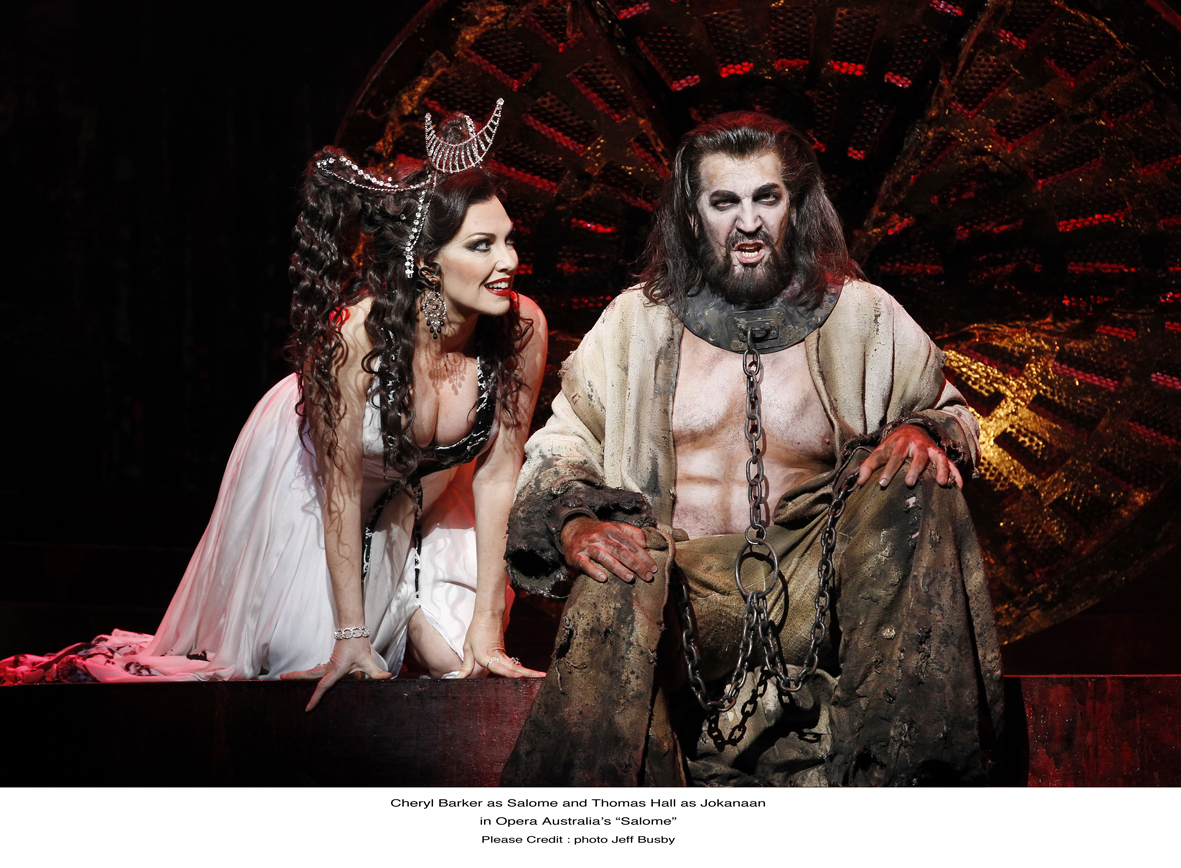

Unable to bear her gaze, the prophet repulses her, while she shouts out her love for him, deaf to the supplications of Narraboth, who, despairing when she does not hear him, kills himself. She voices her desire to touch his body and kiss his mouth. Salome is fascinated by this man so different from all she knows. On emerging from his cell, Jochanaan defies Herod and reviles Herodias, impugning her with every villainy. Seized by a violent desire to see and speak to him, Salome turns to Narraboth and, disregarding the soldiers’ refusal, extracts from him the order to have Jochanaan brought out. The voice of the prophet rings out again and the princess speaks of the Tetrarch’s fear of this man who has cursed her mother, Herodias, for adultery. Salome appears, seeking refuge from the ogling of her stepfather, Herod, and the debauchery of the guests. Indifferent to the discussion of the soldiers, he hears neither the page, who advises him to divert his gaze, nor the disturbing prophesies of Jochanaan who has been locked up in a cell on the orders of the Tetrarch. A dazzling hour and forty minutes, decadent in its very essence, which, for her debut at the Paris Opera, Lydia Steier treats as a dystopia in which amorality rules.Ĭontemplating the feast given by Herod, Narraboth, the young Syrian, only has eyes for Princess Salome.

A hypnotic interlude in itself sufficient to capture the fatal mounting desire that suffuses this work whose orchestration is as rich as it is modern. From Herod’s lubricious injunction to the young woman stems one of the most emblematic orchestral passages in opera: the dance of the seven veils.


Drawing on Oscar Wilde’s scandalous play of the same name, in 1905 Richard Strauss produced the work that was to ensure his status as Wagner’s successor in the history of German opera. Obsessed by this enigmatic and virtuous man, Salome is ready to do anything to possess him, dead or alive. Her curiosity is roused when she hears the voice of Jochanaan, a prophet held prisoner by Herod who is afraid of him. Salome, princess of Judea, the daughter‑in‑law of King Herod, finds life in her father‑in‑law’s palace dreary.


 0 kommentar(er)
0 kommentar(er)
